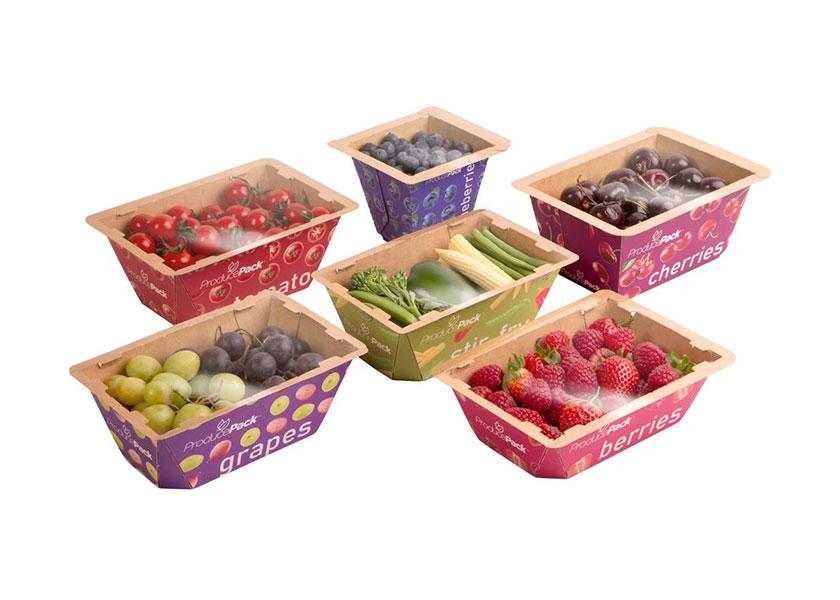Convenience, sustainability top organic produce packaging trends

Consumers want both convenience and sustainability in organic produce packaging, and marketers say they will deliver.
In a web survey, The Packer asked organic produce marketers about present-day consumer attitudes toward organic produce packaging and how those expectations may evolve in the next five years.
Today and tomorrow
Pouch bags and other "grab-n-go" packaging have become increasingly popular since the start of the COVID-19 pandemic in 2020, said Kevin Stennes, organic sales manager for Chelan Fresh, Chelan, Wash.
Read related: Solutions for organic produce sector — Storage capacity, profitability, water, labor and others
Looking ahead, Stennes sees a continuation of more bag offerings in both shipper labels and retail private labels, combined with an increase in more recyclable and sustainable consumer packaging.
Produce packaging will continue to move away from single-use plastics, said Elise Smith, marketing manager for Home Grown Organic Farms, Porterville, Calif.
More sustainable and recyclable options are in higher demand now compared with before the pandemic, said Joel Hewitt, organic sales manager for CMI Orchards, Wenatchee, Wash. With the majority of organic apple sales in bags, that is an important factor going forward, he said.
Read related: Organic sales are up but volume is lower in the third quarter, Organic Produce Network reports
Hewitt anticipates a shift to more sustainable packaging options. “CMI is doing extensive research and testing different packaging options that best fit this need,” he said.
The difference in organic apple packaging now compared with before the pandemic isn’t that great, said Catherine Gipe-Stewart, director of marketing for Yakima, Wash.-based Domex Superfresh Growers.
“When comparing 2022 versus 2019, there actually hasn’t been a change,” she said. “Both [Nielsen 52-week views ending 9-10-22 & 9-11-21] are currently showing packaging is about 44.5% of apple volume share.”
The organic customer tends to be both more health-conscious and is looking for more earth-friendly products, said Chuck Sinks, president of sales and marketing for Sage Fruit Co., Yakima. “Therefore, in the next few years, I think we’ll see organic packaging, if not all packaging, move towards more sustainable options, whether it be recyclable, biodegradable or compostable. We will comply.”
Read related: Sage Fruit expects increase in organic availability
Consumers want organics to be in more earth-friendly packaging and are more aware about that packaging now, said Brian Bocock, vice president of product management for Naturipe Farms. At the same time, attitudes have changed in the sense that people are not as willing to buy produce from a bulk display now post-pandemic as they were before the pandemic. “Packaging will become more earth-friendly,” he said.
“Consumers are busier than ever, so grabbing a prepackaged product is convenient and often times the better value per pound,” said Chris Ford, business development and marketing manager for Viva Tierra Organic, Mount Vernon, Wash. At the same time, shoppers are increasingly aware of how single-use plastics harm the environment. As a result, Ford expects more corrugated packaging in five years, and less plastic.
“Packaging for organics is more accepted today than it was pre-pandemic,” said Brianna Shales, marketing director for Stemilt Growers, Wenatchee, Wash. “It's also something that helps ensure an organic ring happens at the register, especially as stores move towards self-checkout. It helps consumers understand what they are buying when making online purchases.”
Read related: USDA announces regional networks for Transition to Organic Partnership Program
In five years, Shales said she expects packaging will continue to be important, but packaging options will have sustainability in mind. “Plastic will move to options that can be recycled, at least at store drop-off locations,” she said.
Stephanie Cantero, communications and marketing coordinator for the Salinas, Calif.-based Nunes Co., said she also expects more sustainable packaging industry-wide in five years.
“The consumer trend is towards more packaged items during the pandemic, quick and easy to grab off the shelf, and the trend in packaging materials is towards more environmentally sustainable packaging,” said David Posner, president and CEO of Awe Sum Organics, Santa Maria, Calif.







